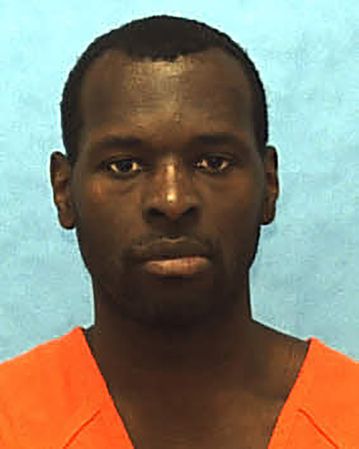Advertisement
Florida Supreme Court weighs unconstitutional death sentences
By Bill Cotterell
TALLAHASSEE, Fla. (Reuters) – The Florida Supreme Court on Thursday weighed the fate of a death row inmate sentenced under a scheme the U.S. Supreme Court declared unconstitutional this year, in a case that could affect nearly 400 other state inmates awaiting execution.
Executions in Florida, home to the nation’s second-largest death row, have been on hold since the high court in January struck down the state’s capital punishment laws.
The U.S. Supreme Court’s 8-1 ruling invalidated the process by which a judge sentenced Timothy Hurst to death for the 1998 murder of a fried-chicken restaurant manager.
On Thursday, his lawyer asked the Florida Supreme Court to commute Hurst’s sentence to life in prison. Assistant Public Defender David Davis said the state cannot sustain a death sentence, if the procedure for imposing it was flawed.
“There is no ambiguity,” Davis said. “You can’t separate the punishment from the procedure … It’s like having a bullet without a gun.”
State prosecutor Carine Mitz said the ruling did not automatically reduce Hurst’s sentence. She asked the court to leave him on death row, or find that he should be resentenced under new state law.
The Florida legislature retooled the state’s capital punishment approach this spring, after the U.S. Supreme Court found that Florida had given judges powers that juries should wield in determining eligibility for execution.
While Hurst’s attorney stressed that he did not speak for about 390 inmates currently on death row in Florida, the questions raised by the state’s high court justices indicated their concern for the broader ramifications.
“We want to try to have a death penalty in this state. We want to try to do the right thing,” Justice Barbara Pariente told Mitz.
Several former state Supreme Court justices and other high-profile legal experts this week filed a brief in support of mass commutation. They said state law requires that if the death penalty was declared unconstitutional, all pending sentences should become life without parole.
The state, however, contends that the death penalty was not found to be unconstitutional, only the method used to impose it.
The Hurst decision’s reach is expanding. Earlier this week, the U.S. high court told the Alabama Court of Criminal Appeals to reconsider its sentencing scheme in light of the ruling. Delaware, which also allows judges to impose death sentences without a unanimous jury finding, is reviewing its laws as well.
(Writing by Letitia Stein; Editing by David Gregorio)











